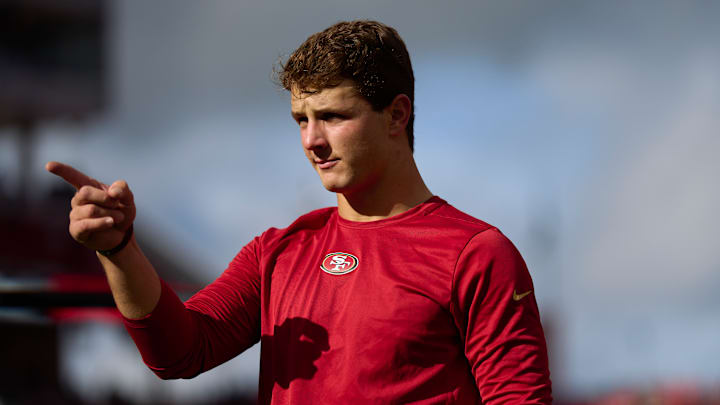Niner Noise dives into explaining just how rookie contracts are comprised and installed at the NFL level.
Prior to 2011, rookie NFL draftees could end up making an exorbitant amount of money without even playing a snap at the pro level.
In case you forgot, back in the 2010 NFL Draft, the St. Louis Rams took quarterback Sam Bradford at No. 1 overall, and he commanded a six-year deal worth up to $78 million with $50 million of that guaranteed.
It was the largest rookie contract dished out in league history at the time, and it led to both the NFL and the players union to agree upon a wage scale for rookie draft picks that still exists to this day. The No. 1 overall pick in the draft, regardless of who he is or what position he plays, will end up with a contract that's worth just a shade more than the No. 2 overall pick. Then the No. 2 overall pick's contract is worth a little more than the No. 3 overall pick, and this process repeats all the way down to the final pick in the NFL Draft, "Mr. Irrelevant."
Read more: 'Mr. Irrelevant' history and some notable names who were drafted last
CBS Sports' Joel Corry, a former NFL agent himself, pointed out a number of key aspects of rookie contracts for draftees. Perhaps the most notable is the fact very few items within the contract are negotiable, although that won't stop agents from trying to get the best deals possible for their clients entering the pro ranks. This is usually in the form of offsets, bonuses and verbiage within the deal.
How many years is a rookie contract in the NFL?
We need to differentiate between a rookie contrat for a player who was drafted versus one who wasn't, otherwise known as an undrafted free agent or UDFA.
For drafted players, all rookie contracts are for four years.
Round 1 picks have a fifth-year team option that must be picked up for declined by the team holding the contract between the player's third and fourth seasons.
Fifth-year options are also fully guaranteed in terms of cash value.
For UDFAs, they're essentially free agents and can opt to sign whatever deal is best for them. However, these contracts are usually very small with little-to-no guaranteed money.
How much do NFL Draft picks earn on their rookie contracts?
Under the tiered system that's currently in place, the amount given to draftees decreases slightly with every pick.
Corry actually listed out the first 32 selections from the 2023 NFL Draft and projected their contract values, but let's just stick with the first five:
Pick | Player | Team | 2023 Cap Hit | Signing Bonus | Contract Total |
|---|---|---|---|---|---|
1 | Bryce Young | Carolina Panthers | $6,900,922 | $24,603,688 | $37,955,071 |
2 | C.J. Stroud | Houston Texans | $6,596,226 | $23,384,904 | $36,279,243 |
3 | Will Anderson Jr. | Houston Texans | $6,402,330 | $22,609,320 | $35,212,815 |
4 | Anthony Richardson | Indianapolis Colts | $6,180,733 | $21,722,932 | $33,994,032 |
5 | Devon Witherspoon | Seattle Seahawks | $5,792,937 | $20,171,748 | $31,861,154 |
As you can see, the contract totals decrease by each player ever so slightly. And you can get a complete delta by looking at the differences between the No. 1 overall pick from the 2022 NFL Draft, Jacksonville Jaguars defensive end Travon Walker -- four years at $37,372,624 ($9,343,156 APY) -- versus the final pick from 2022, the San Francisco 49ers quarterback Brock Purdy -- four years at $3,737,012 ($934,253 APY).
Without getting too complex in the math, the No. 1 overall pick effectively makes 10 times the amount as Mr. Irrelevant.
Can teams and players renegotiate rookie contracts?
Let's say a rookie breaks into the league and is dominant, not unlike how Purdy shocked the NFL world late last season.
If he could, his camp would immediately turn to the Niners and demand a reworked contract that paid him an appropriate amount of money. Should San Francisco budge, Purdy could hold out and not attend offseason workouts, training camp or even preseason games.
Well, the current CBA doesn't allow for that.
A rookie contract can't be renegotiated, and players on those deals can't be extended until after their third season. This is often why it's important for many teams to have star players still playing on their relatively cheap rookie deals as long as possible.
Contracts can and often do carry penalties for teams if the player is waived prior to the contract's expiration, often called "dead money."
